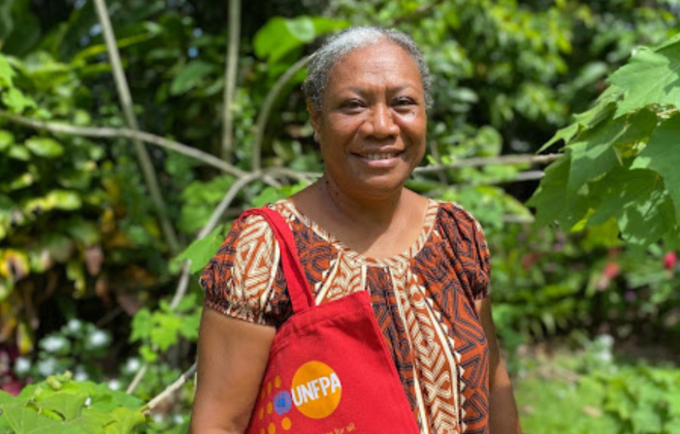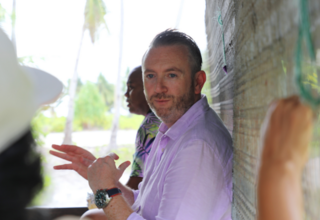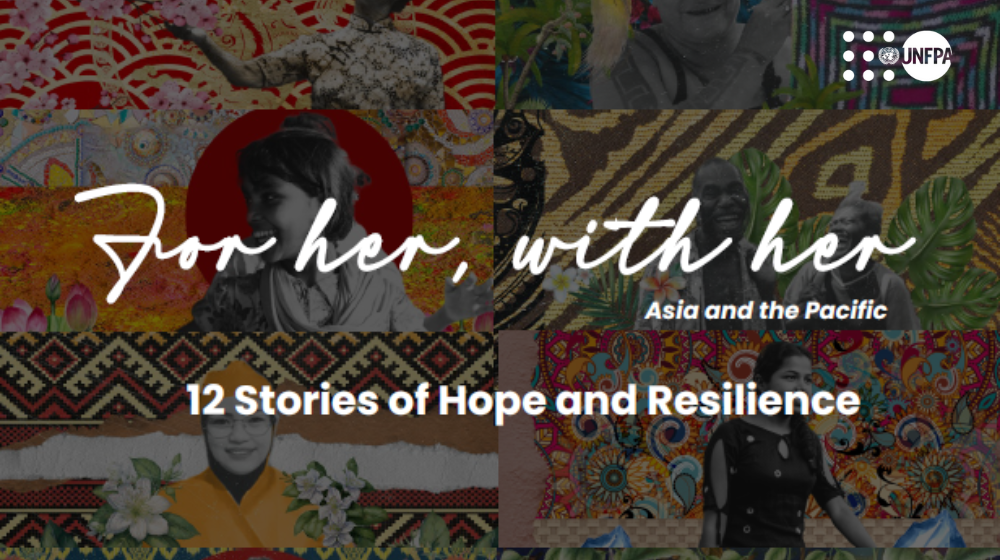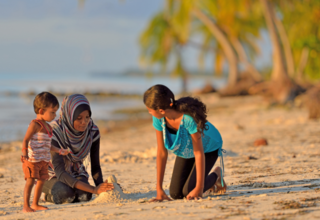Esther is a deputy health manager in Alotau District who knows how essential it is to not only have a strong response and referral system for gender-based violence (GBV) survivors, but for the entire community to know that help is available and that healing from violence is possible. UNFPA, with the support of Zonta International and in partnership with government institutions, is empowering health care workers like Esther to guide survivors towards help when it’s needed most.
An advocate for change
Papua New Guinea has high levels of gender-based violence, with over half of all women experiencing physical, sexual or emotional violence in their lifetime (DHS 2016-18). Supporting local health care facilities and service providers is crucial to ensuring life-saving services are accessible to survivors, and this is why UNFPA works with partners to strengthen the gender-based violence response services and system.
Esther, a clinical health care provider, and now deputy health manager in Alotau District, is an ardent advocate and activist for fighting gender-based violence. She participated in two trainings conducted by UNFPA and Zonta International aimed to strengthen health care providers’ participation in referral pathways and case management systems. Since then, she has become passionate about connecting others with the knowledge and skills she has acquired.
“Since the training, I’ve been traveling a lot in the districts and visiting health facilities,” Esther tells us. “I’ve been raising awareness about gender-based violence and how it should not be overlooked, as well as sharing information on the services available for survivors.”
She even went to local government officials to help raise their awareness on the reality of gender-based violence, and the importance of a strong coordinated response. “I am trying to sensitize people,” she continues. “And am always stressing the importance of identifying the referral channels.”
Teamwork works
Survivors of gender-based violence need many different services in their recovery process, including appropriate medical and psycho-social support, accessible legal counseling, effective justice systems, and shelters. It’s critical for service providers to have the skills to treat and accompany survivors throughout the healing process, as well as the knowledge of pathways to specific services that the survivor may wish to access.
In Esther’s opinion, there are big gaps in the health system response to gender-based violence. She explains. “Health care providers do not know how to help survivors get help! At the clinic where I work, I see the need to inform and educate my staff on these service gaps. I bring it up during every weekly meeting.”
The UNFPA facilitated trainings,supported by Zonta International, helped Esther to better understand how she can assist survivors and provide better care for them. It has also built her confidence, and she’s become a leader who understands the importance of teamwork.
“We have now been able to join together as a team with other health service providers, connecting with each other to strengthen referrals,” she says. “The UNFPA training really strengthened everyone’s understanding. A lot of our team did not understand gender-based violence until they participated in the training.”
Overcoming barriers
The fight against gender-based violence is still an uphill battle in the remote areas of Alotau District.
“My biggest concern at the moment is how to make the referral system work in isolated, remote areas. Even within Alotau, many who need help are still not aware of the referral pathways.”
Hopefully, with more advocates like Esther, this will change.




